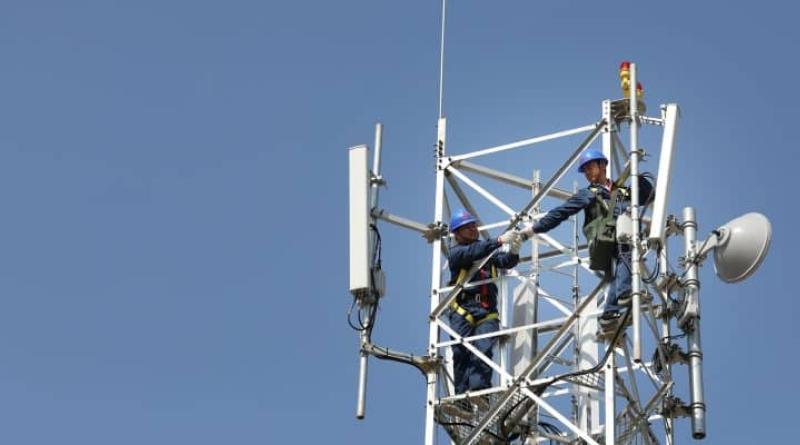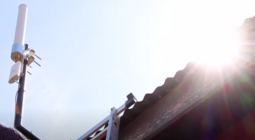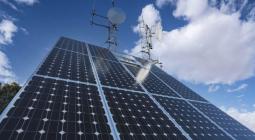Sustainable connectivity in the age of climate crisis: Huawei leads by example

In Africa, connectivity remains a challenge, particularly due to the lack of network infrastructure such as optical fiber and mobile networks (3G, 4G). Aware of this reality, Huawei has been mobilizing for several years to support a real digital boom in Africa, but not only that... The global supplier of ICT infrastructure and smart devices is also adapting its connectivity access equipment to serve the sustainable development.
Connectivity, which refers to the ability to connect and communicate within or between networks, is essential for a variety of modern applications, such as web browsing, email communications, social networking, streaming content, and the use of cloud-based software. Although it has become essential today, not everyone yet has access to it, mainly in Africa due to the lack of network infrastructure, notably optical fiber and mobile networks (3G, 4G). As for the internet, the largest communications network, the penetration rate on the continent barely reached 40% in 2021, well below the global average of 68%.
With a view to improving internet access in Africa, Huawei is developing infrastructure to improve 4G mobile networks in particular, allowing users to browse the web more easily and run complex applications more quickly than with 3G. This is the case in the Ethiopian capital Addis Ababa where the 4G network has been available since 2015.
Complementing Huawei's efforts to develop 4G mobile networks in Africa, the company has undertaken several initiatives to improve connectivity on the continent, including deploying fiber optic and wireless broadband solutions in various African countries. In addition, Huawei has collaborated with governments and local operators to develop advanced telecommunications infrastructure, including base stations for mobile networks and interconnected fiber optic networks. These developments are essential to supporting economic and social growth, for example by enabling access to online health services and distance education.
Huawei is also engaging in the field of Internet of Things (IoT), where its technologies help connect various devices and systems for more efficient resource management. A notable example is the “Smart Irrigation” project in Morocco, which uses IoT for smart, water-saving agricultural irrigation. These initiatives demonstrate Huawei's commitment to strengthening connectivity in Africa, providing technology solutions that meet the specific needs of the continent.
Making connectivity more sustainable in Africa: Huawei’s strategy
Promoting sustainable development by reducing the carbon footprint of its networks is the second challenge that Huawei has set itself. Its key initiative, Huawei Green 1-2-3, aims for sustainable connectivity, combining energy efficiency, renewable energy integration and user experience optimization. Huawei Green 1-2-3 therefore represents a holistic and systematic approach to making ICT infrastructure greener and more sustainable.
It is indeed a question of responding to an essential imperative because as the digital world develops rapidly, ICT infrastructure needs more and more energy. This is the case for data centers whose respective share in global energy consumption continues to increase. To face this challenge, Huawei is responding with low-carbon solutions for data centers, in accordance with its GSSR concept for Green, Simple, Smart and Reliable, (GSSR), in French: green, simple, intelligent and reliable. This innovative concept aims to offer solutions adapted to the size of data centers depending on whether they are small, medium or large, thus guaranteeing the stable functioning of the digital economy.
Huawei has notably developed FusionDC1000A, an all-in-one modular data center that optimizes energy efficiency through intelligent management and integrated cooling and power systems. Unlike traditional data centers, it requires less complex planning and installation. Used by Mountain View, an Egyptian real estate developer, this 25-year sustainable solution enables remote management, reducing operating and maintenance costs.
The use of solar energy
Huawei is also harnessing the abundant solar potential in Africa to establish sustainable connectivity through solar energy. For example, Huawei is reinventing its telecommunications towers by replacing diesel generators with advanced solar solutions and an energy storage system managed by artificial intelligence. Deployed in Ethiopia on 400 sites, this innovation ensures constant connectivity, saves 12 million liters of diesel and reduces CO2 emissions by 2,850 tonnes annually.
In Africa, Huawei thus plays a crucial role, strengthening connectivity while minimizing the environmental impact of the development of information and communication technologies, thus combining innovation and sustainability. The company engages in projects that improve connectivity, including satellite, and raise awareness of environmentally friendly practices in information and communications technology (ICT). Its goal is to make technology accessible to all, while reducing the digital divide and promoting innovation. Huawei works in harmony with local African policies to promote the use of environmentally friendly technologies. This approach, adopted globally by the company, aims to minimize the environmental impact of the digital sector, a major vector of development on the African continent but also a significant contributor to greenhouse gas emissions on a global scale.
Article produced in partnership with Huawei




